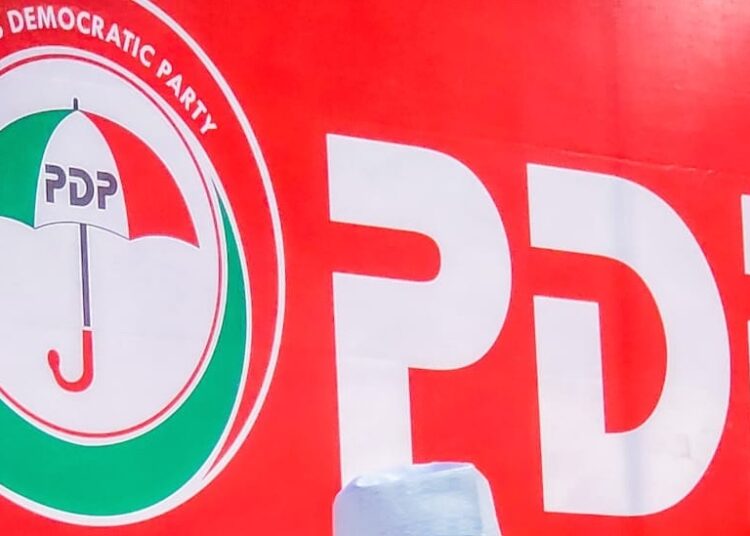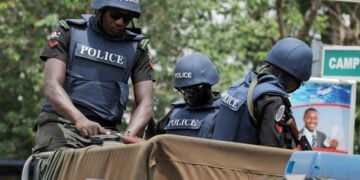The story of Peoples Democracy Party (PDP), Nigeria’s former national ruling party, is one of failed promises and abuse of public goodwill as a political institution.
Its formation in August of 1998, by eminent Nigerians, from former late vice president, Alex Ekwueme, late Chief Solomon Lar, late Alhaji Abubakar Rimi, late Chief Tony Anenih, to the others like Alhaji Bamanga Tukur, Prof Jerry Gana, Sule Lamido, and other G34 members, the party represented some of Nigeria’s finest yet imperfect political actors at the time.
Like other parties at the time, it was a sober marriage of common political interest.
With the unfortunate backstories of June 12, Gen Sani Abacha regime, and clamour for return to civilian rule, PDP’s formation held high expectations.
Nobody expected PDP to be a perfect institution, especially when DNA residues of military rule practitioners got infused into the party at early infancy. What’s more, after over a decade of different military regimes, it would have been unrealistic not to have such imperfections
But nobody expected it to transform from a reckless political behemoth to its current limp state. Not even its living founding fathers can recognise the party they gave birth to.
There are few examples that reflect the party’s dying stance than the reality that it once controlled 32 states at its peak within the last two decades, but now struggles to keep 11 states today.
Years of indiscipline, power drunkenness and recklessness, abuse of masses’ sensibilities and goodwill led the party down a dark path it now finds difficult to crawl out of.
Decades-long inability to respect its own rules led to the emergence of politicians so powerful they undermined the party’s supremacy for years.
Those who took over the reins of the party only saw a special purpose vehicle to consolidate power. Nothing more.
Like most political institutions, the structure and makeup of the party in itself is not the problem. Its practitioners have always been. And sadly the party’s recruitment process has been some of the most questionable. The complaints of imposition of candidates has dogged the party’s image for decades. Tales of evidently flawed primaries became too commonplace that it was assumed to be the new normal.
It is a shame, in our opinion, that the hope bequeathed by the party’s founding fathers have been wasted, consumed by the unbridled crave for power and influence.
Although the broad-minded ideological bent of the party wasn’t perfect at birth, it nevertheless was a far better party than what it has become today.
The party has, with time, lost its soul to the quest by its elite members to consolidate power and unrestrained access to the commonwealth.
Losing power was not the worst that could have happened to PDP. In democratic climes where we adopted our party system from, we have seen parties lose power, rebuild and sometimes return to power within a decade.
The difference, however, is that the opposition in those climes are usually genuinely sober, undertake reforms to show attempts at restituting, and evolve strategic people-centric engagements with the electorate while also holding the government to account based on well-researched criticisms.
The party needs deep reflection, not its usually touted kind. Rather than fixate on return to power, it should do a self-surgery on how it operates, and if it dares, purge itself of indiscipline.
The crisis of PDP is its inability to hold the ruling party to account.
The concept of a viable PDP held the hope of a vibrant opposition to check the excesses of the ruling party. But for a party that is trailing the path of the incumbent, it would be too much to expect that PDP could provide credible, fact-based, conscientious and forward looking criticisms.
It is for this reason that many would hope that the party remains viable beyond mere contest for power but a catalyst, through constructive engagements and ideas, to put the ruling party in check. That is the essence of a multi-party democracy, especially in a diverse nation.
Sadly, other opposition platforms that ought to learn from the failings of PDP are already displaying signs of overtaking PDP if the opportunity presents itself. If their current political vibe is anything to go by, just like PDP, their tendencies reflect a desperation to get political power for parochial interests.
It would seem like their grouse with the ruling party ranges more from political vengeance to control of the commonwealth than the real interests of Nigerians they want to rescue from misrule.
Apparently, there is no better reflection of the weakness of the opposition than the sum total of the characters of the political class in Nigeria.
Consumed by untrained passion for power, the political class has, inadvertently, been set on a course to waste the destiny of a people with the potential not just to lead Africa but give the black race meaning in the global space.
Of course, while mindful of the sin of attributing a messiah complex to Nigeria, the place of the country in the black’s race contemporary story has always been echoed by eminent Africans.
Sadly, the smallness of mind of today’s Nigerian politician has been the obstacle to what should be sooner. This, perhaps, might be the tale of PDP which once presided over the largest black nation in the world. The expectation is that the ruling party will learn from mistakes of its immediate forebear.





